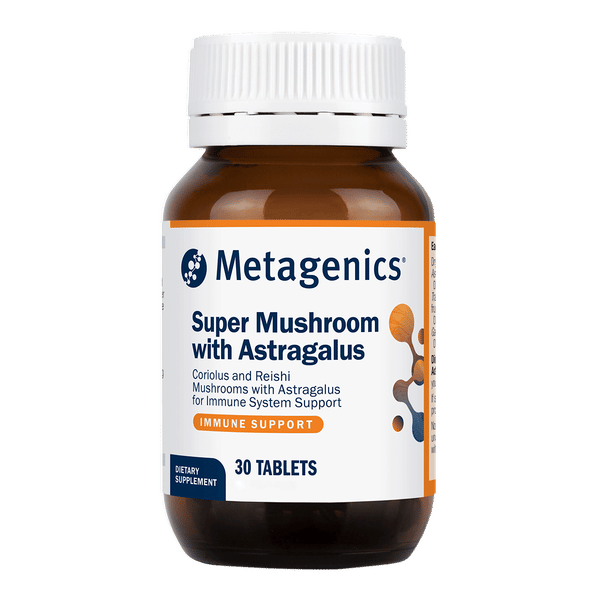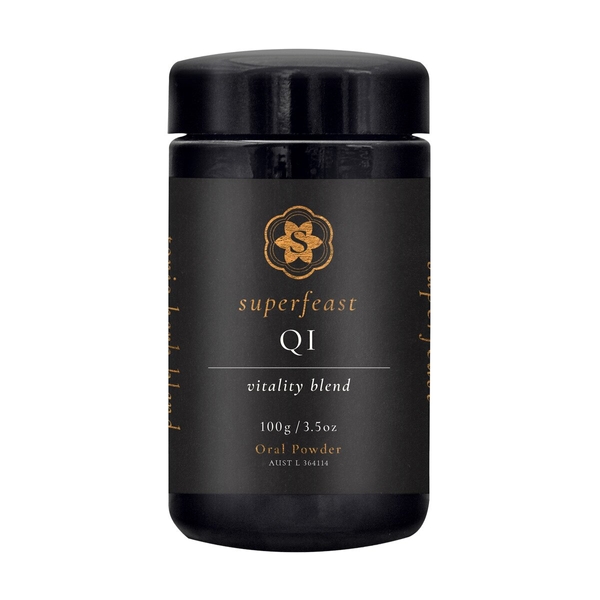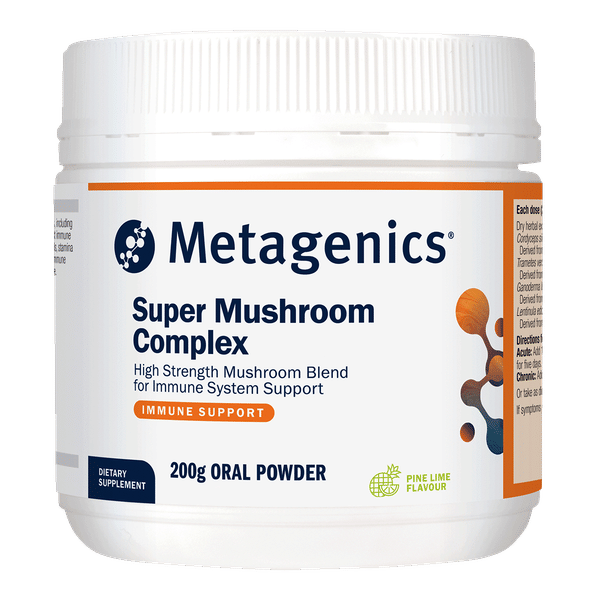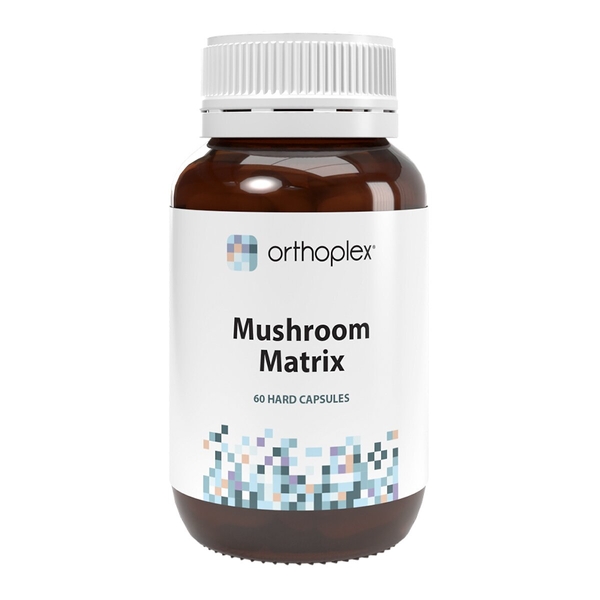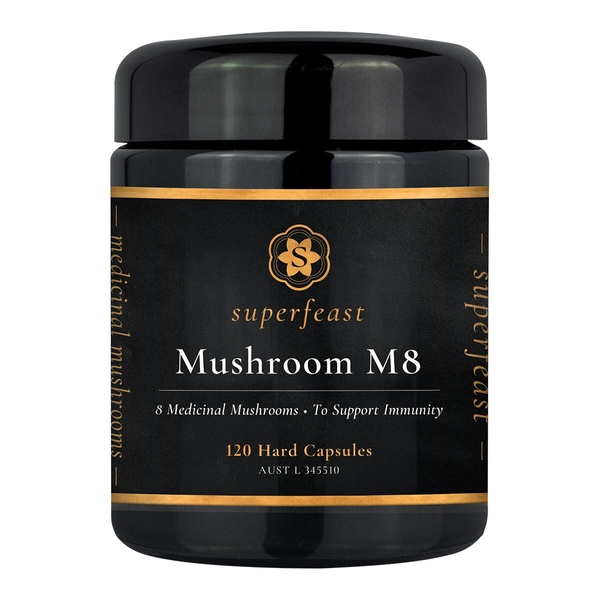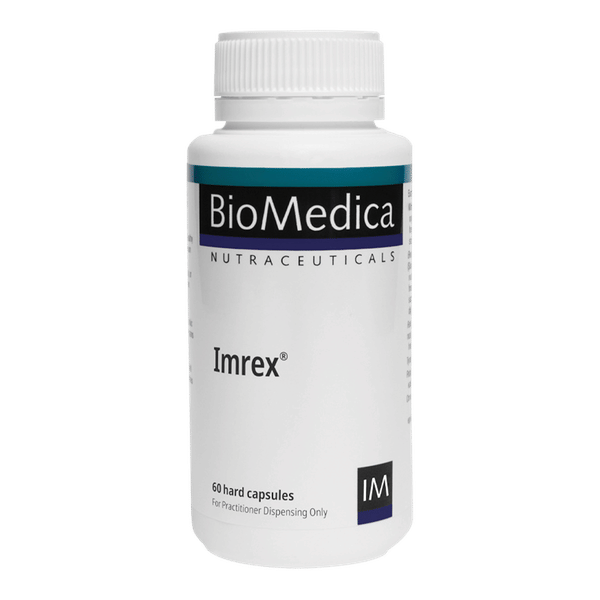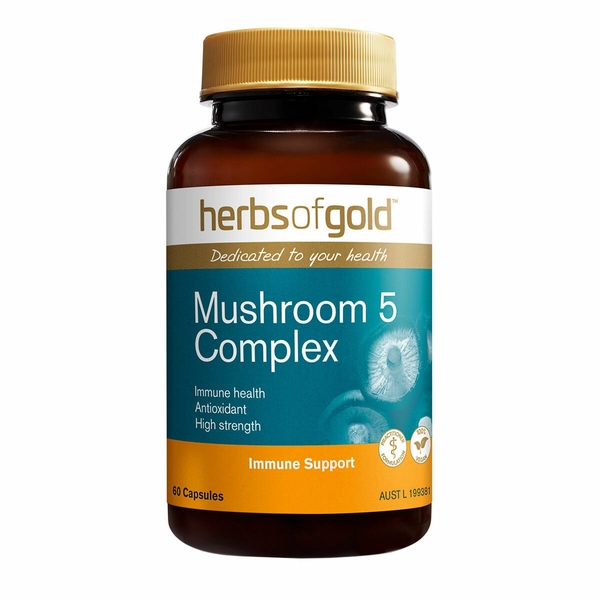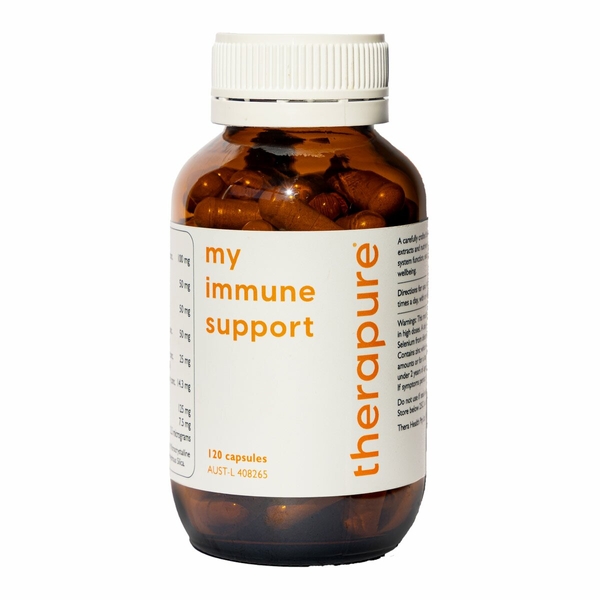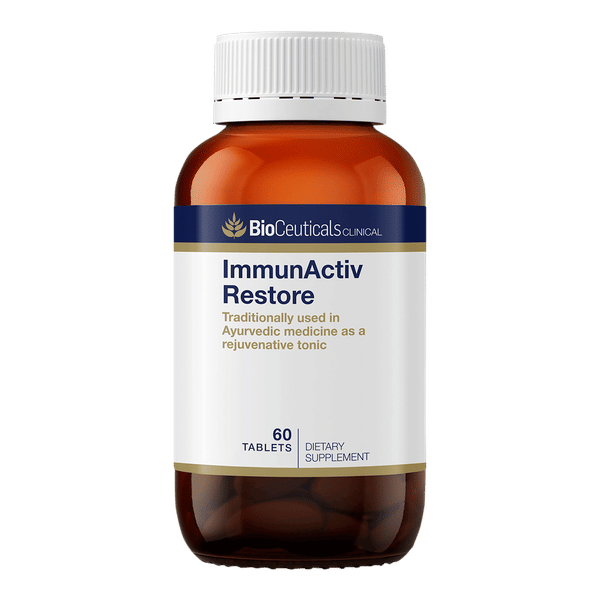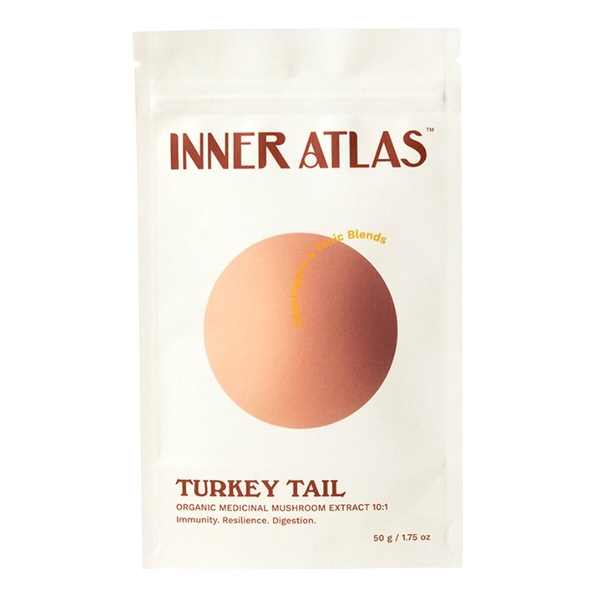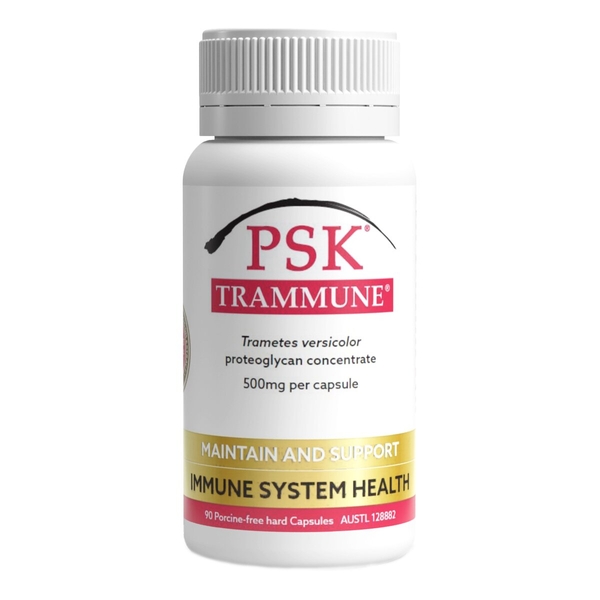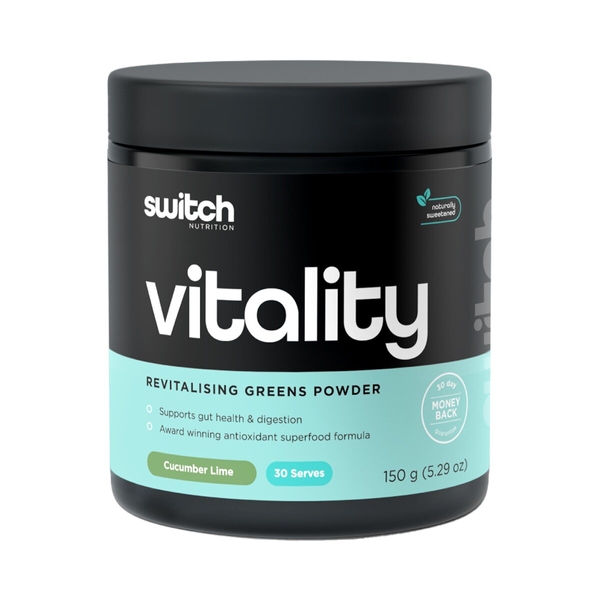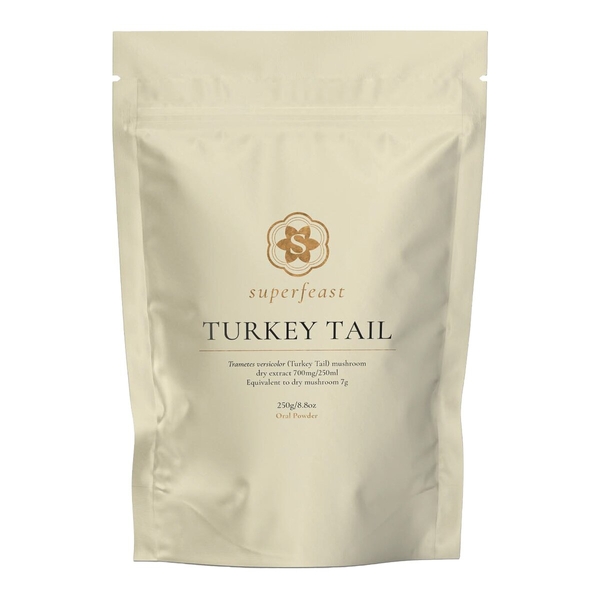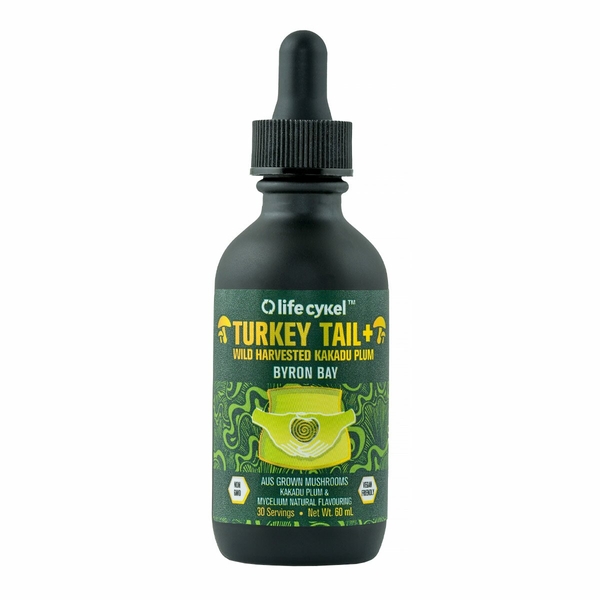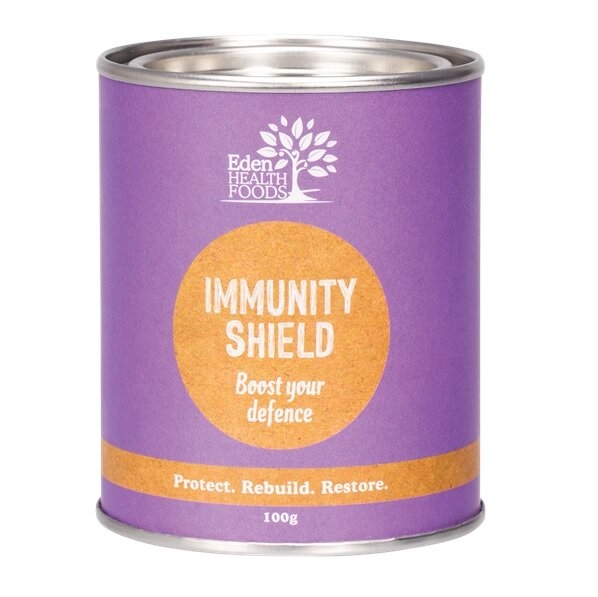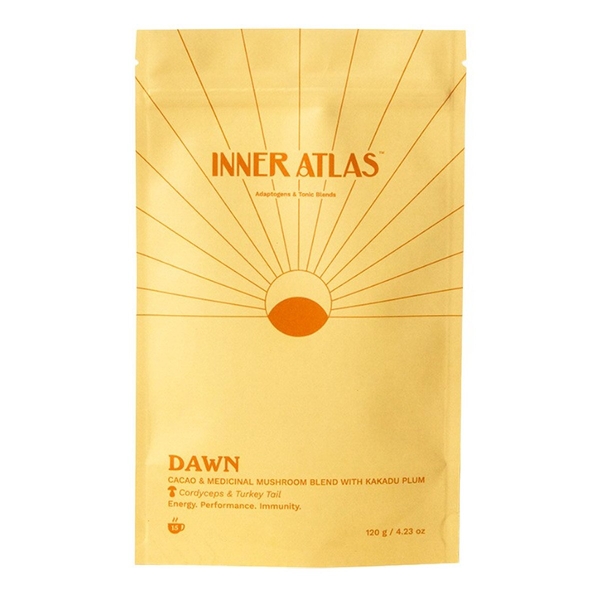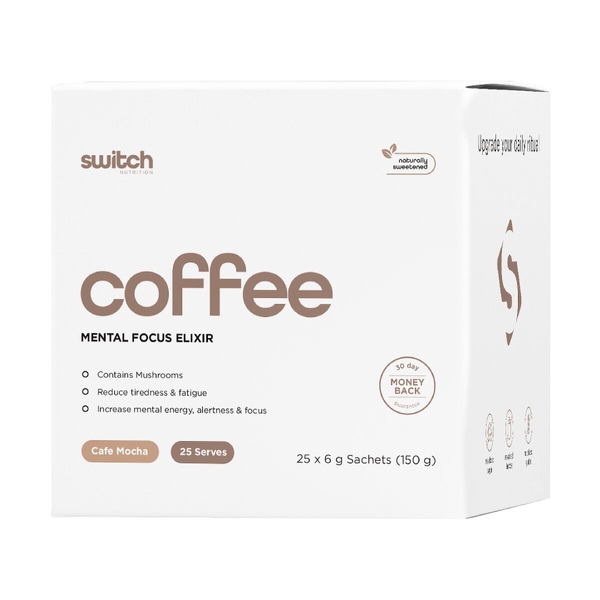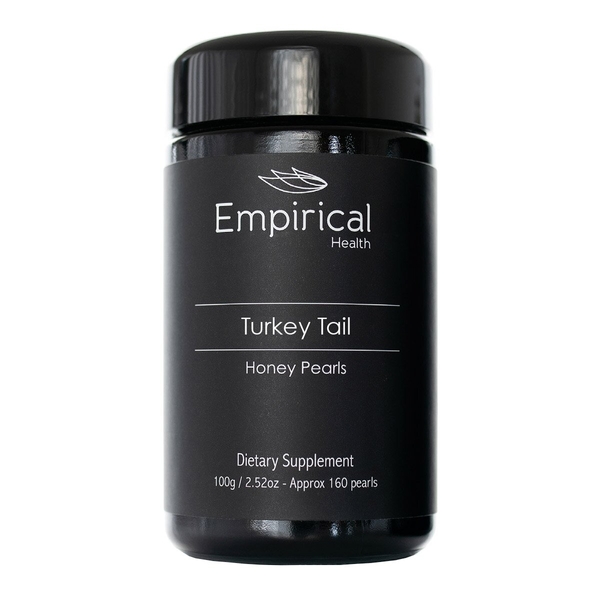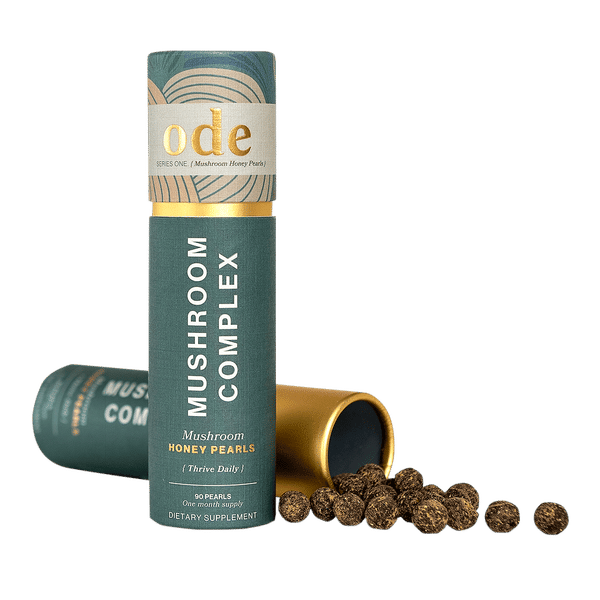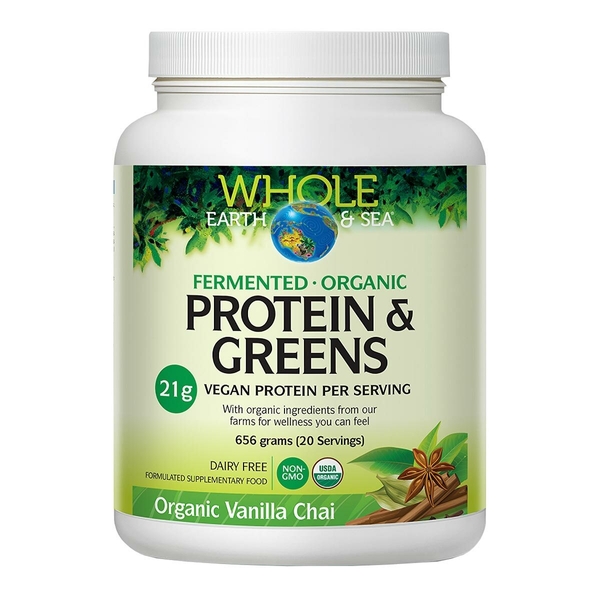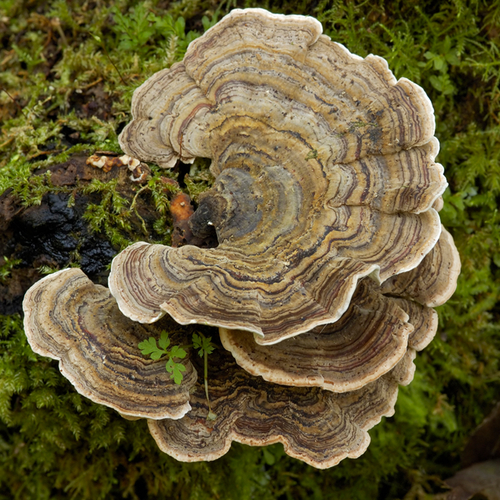
Background
Turkey tail mushroom grows on stumps and the decomposing wood of trees. The PSP and PSK in turkey tail mushroom might help slow cancer growth and boost the immune system.
People use turkey tail mushroom to improve response to cancer medicines and radiation. It is also used for muscle strength, fatigue, UTIs, and many other conditions, but there is no good scientific evidence to support these uses.
Safety Safety definitions
When used in the vagina: There isn't enough reliable information to know if turkey tail mushroom is safe. It might cause side effects like itching and irritation.
Special Precautions & Warnings:
Pregnancy and breast-feeding: There isn't enough reliable information to know if turkey tail mushroom is safe to use when pregnant or breast-feeding. Stay on the safe side and avoid use.Effectiveness
- Cancer. Taking polysaccharide krestin (PSK), a substance found in turkey tail mushroom, by mouth might improve the response to chemotherapy by a small amount in some people with certain types of cancer.
Dosing & administration
Interactions with pharmaceuticals
Cyclophosphamide
Interaction Rating=Moderate Be cautious with this combination.
PSP, a chemical found in turkey tail mushroom, might change how quickly cyclophosphamide is removed from the body. This might alter how effective it is, and cause more side effects.
Medications changed by the liver (Cytochrome P450 2C9 (CYP2C9) substrates)
Interaction Rating=Minor Be watchful with this combination.
Some medications are changed and broken down by the liver. PSP, a chemical found in turkey tail mushroom, might change how quickly the liver breaks down these medications. This could change the effects and side effects of these medications.
Medications for diabetes (Antidiabetes drugs)
Interaction Rating=Moderate Be cautious with this combination.
Turkey tail mushroom might lower blood sugar levels. Taking turkey tail mushroom along with diabetes medications might cause blood sugar to drop too low. Monitor your blood sugar closely.
Tamoxifen (Nolvadex)
Interaction Rating=Moderate Be cautious with this combination.
Taking turkey tail mushroom with tamoxifen might change the way that tamoxifen works in the body or reduce the effects of tamoxifen.
Interactions with herbs & supplements
Interactions with foods
Products
View all products- Trametes versicolor (Turkey tail) ext. 76.8 mg
- Ganoderma lucidum ext. 76.8 mg
- Cordyceps sinensis ext. 76.8 mg
- Grifola frondosa ext. 76.8 mg
- Lentinula edodes ext. 76.8 mg
- Polyporus umbellatus ext. 38.4 mg
- Tremella fuciformis ext. 38.4 mg
- Poria cocos ext. 38.4 mg
- Trametes versicolor (Turkey tail) ext. 65 mg
- Ganoderma lucidum ext. 37.5 mg
- Lentinula edodes ext. 150 mg
- Curcuma longa 23.43 mg
- Cholecalciferol 12.5 μg equiv. vitamin D3 500 IU
- d-alpha-Tocopheryl acid succinate 124 mg equiv. vitamin E 150 IU
- Selenomethionine 187.5 μg equiv. selenium 75 μg
- Zinc citrate dihydrate 23.44 mg equiv. zinc 7.5 mg
- Camellia sinensis ext. 166.7 mg
- Retinol palmitate (Vitamin A) 2.34 mg equiv. vitamin A 4250 IU equiv. vitamin A 1.28 μg RE
- Trametes versicolor (Turkey tail) ext. 25 mg
- Astragalus membranaceus ext. 100 mg
- Withania somnifera ext. 50 mg
- Ascorbic acid (Vitamin C) 125 mg
- Zinc citrate dihydrate 23.36 mg equiv. zinc 7.5 mg
- Selenomethionine 31 µg equiv. selenium 12.5 µg
- Schisandra chinensis ext. 50 mg
- Lentinula edodes ext. 50 mg
- Ganoderma lucidum ext. 14.3 mg
- Trametes versicolor (Turkey tail) 70 mg
- Brassica oleracea var. italica powder 250 mg
- Arthrospira platensis (Spirulina) 100 mg
- Cordyceps sinensis 105 mg
- Lentinula edodes 100 mg
- Astragalus membranaceus 100 mg
- Camellia sinensis 500 mg
- Grifola frondosa 125 mg
- Spinacia oleracea (Spinach) 175 mg
- Brassica oleracea var. acephala (leaf) powder (Kale) 175 mg
- Nasturtium officinale 160 mg
- Apium graveolens powder 110 mg
- Pleurotus eryngii 100 mg
- Lipase 750 LipU
- Protease 1000 DU
- Ananas comosus (Bromelain) 350 GDU
- Carica papaya (Papain) 40 mg
- L-glutamine 500 mg
- Bacillus coagulans 4 billion CFU
- Lactobacillus rhamnosus 750 million CFU
- Saccharomyces cerevisiae (boulardii) (SB) 500 million CFU
- Quercetin 100 mg
- Taraxacum officinale 100 mg
- Coriandrum sativum 80 mg
- Zingiber officinale 50 mg
- Rosmarinus officinalis 50 mg
- Origanum vulgare powder 50 mg
- Natural flavours
- Stevia rebaubiana ext.
- Eleutherococcus senticosus 100 mg
- Citric acid anhydrous
- Chlorella vulgaris powder 175 mg
- Trametes versicolor (Turkey tail) (fruiting body)
- Water
- Alcohol
- Kakadu plum flavour
- Trametes versicolor (Turkey tail) (mushroom)
- Echinacea angustifolia
- Astragalus membranaceus
- Sambucus nigra (fruit)
- Lycium barbarum
- Rosa canina
- Luo Han Guo (fruit) ext. (Monk fruit)
- Echinacea purpurea
- Sambucus nigra
- Glycyrrhiza glabra (root)
- Olea europaea (leaf)
- Calendula officinalis
- Origanum vulgare
- Uncaria tomentosa
- Mentha x piperita
- Thymus vulgaris
- Cola acuminata
- Foeniculum vulgare
- Inula helenium
- Asclepias tuberosa
- Achillea millefolium
- Armoracia rusticana
- Capsicum spp.
- Allium sativum
- Allium cepa
- Zingiber officinale
- Cordyceps sinensis (mushroom)
- Ganoderma lucidum (mushroom)
- Lentinula edodes (mushroom)
- Tremella fuciformis (mushroom)
- Salvia eremostachya
- Hericium erinaceus (mushroom)
- Inonotus obliquus (mushroom)
- Ilex paraguariensis
- Trametes versicolor (Turkey tail)
- Cordyceps militaris
- Pleurotus eryngii
- Lentinula edodes
- Grifola frondosa
- Coffea arabica 2.9 g
- Medium chain triglycerides (MCT) 1.5 g
- Huberzia serrata 25 µg
- Acacia sp. (gum)
- Stevia rebaubiana
- Theobroma cacao 15 mg
- Natural flavours
- Theobroma cacao powder 480 mg
- Alpinia galanga powder 150 mg
- Bacopa monnieri powder 100 mg
- Coffea arabica powder 100 mg
- Acacia sp. (fibre)
- Pea protein concentrate
- Oryza sativa (Rice protein)
- Hordeum vulgare
- Wheatgrass powder
- Amaranth powder
- Quinoa powder
- Medicago sativa
- Malus (Apple)
- Vaccinium corymbosum
- Vaccinium macrocarpon
- Daucus carota powder (Carrot)
- Coriandrum sativum
- Petroselinum crispum
- Cynara scolymus
- Raphanus raphanistrum (Wild radish)
- Taraxacum officinale
- Brassica oleracea var. acephala (leaf) powder (Kale)
- Apium graveolens
- Beta vulgaris
- Spinacia oleracea (Spinach)
- Lycopersicon esculentum (Tomato)
- Brassica oleracea var. italica
- Armoracia rusticana
- Brassica oleracea var. viridis
- Nasturtium officinale
- Ocimum basilicum
- Piper nigrum
- Mentha spicata
- Natural flavours
- Malpighia glabra ext. dry
- Cordyceps sinensis
- Ganoderma lucidum
- Lentinula edodes
- Grifola frondosa
- Elettaria cardamomum
- Cinnamomum spp.
- Cannabis sativa (seed) powder
- Stevia rebaubiana
- Pumpkin seed protein
- Brassica oleracea var. botrytis (Cauliflower)
- Capsicum annuum
- Beta vulgaris (leaf) powder (Swiss Chard)

